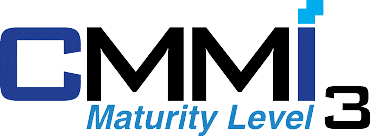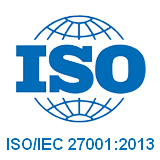Lac Viet is proud to partner Titanium of Dell Technologies specializes in providing a server, physical server, virtual server... with the best technology from the airline. Quote Server Server Dell best.
Buy server physical server Dell PowerEdge Rack
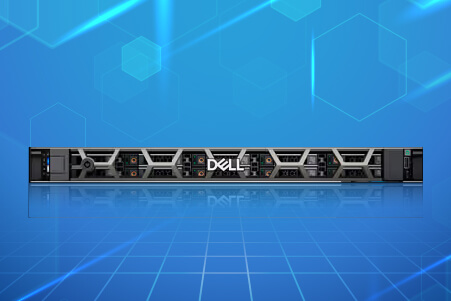
PowerEdge R660
- AMD EPYC 9124 3.0 GHz
- 1x 16GB, 4800MHz
- 1x 480GB SSD SATA
Dell PowerEdge servers R660 is designed to optimize even the workload most demanding as analysis database, dense and virtualization, high-density.
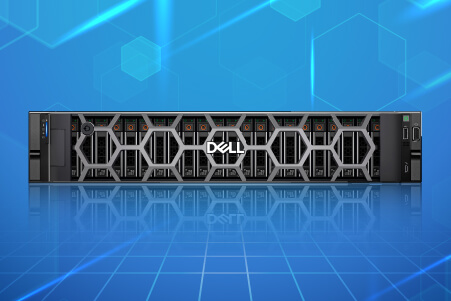
PowerEdge R760
- 2x Intel® Xeon® Silver 4410Y 2G
- 2x 16GB, 4800MHz
- 1x 600GB HD SAS
Attain the performance you need with full features, designed to optimize even the most demanding workloads such as Artificial Intelligence and Machine Learning
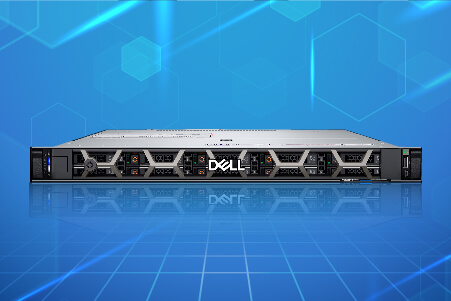
PowerEdge R6615
- AMD EPYC 9124 3.0 GHz
- 1x 16GB, 4800MHz
- 1x 480GB SSD SATA
Designed to be the best investment per dollar for your data center, this server offers performance and flexible storage options with low latency.
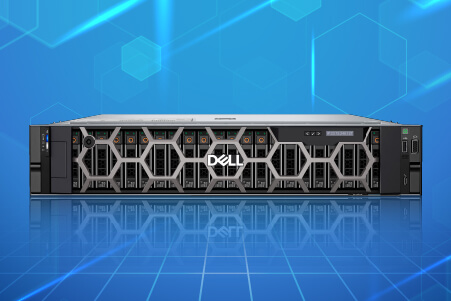
PowerEdge R7615
- AMD EPYC 9124 3.0 GHz
- 1x 16GB, 4800MHz
- 1x 480GB SSD SATA
Dell PowerEdge servers R7615 provides the performance and storage options, flexibility, low latency. This will be the investments most optimal for the data center of the enterprise.
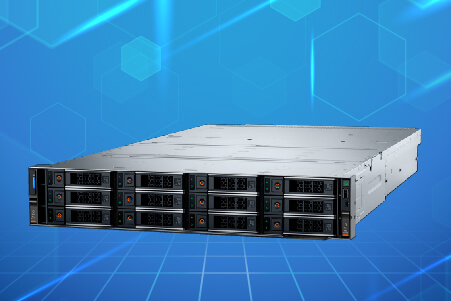
PowerEdge R760xd2
- Intel® Xeon® Bronze 3408U 1.8 G
- 2x 16GB, 4800MHz
- 12x 2TB HD SATA
The PowerEdgeR760xd2 server is easy to configure, maintain, and expand, suitable for file and object storage, video capture/retrieval, and content delivery networks.
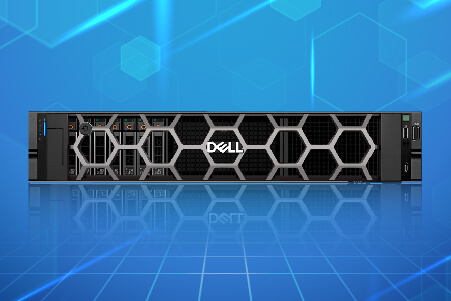
PowerEdge R760xs
- Intel® Xeon® Bronze 3408U 1.8 G
- 1x 16GB, 4800MHz
- 1x 2TB HD SATA
Specialized for virtual desktop infrastructure (VDI), virtual machines (VM), and software-defined storage (SDS) environments, it is scalable and has a large storage capacity.
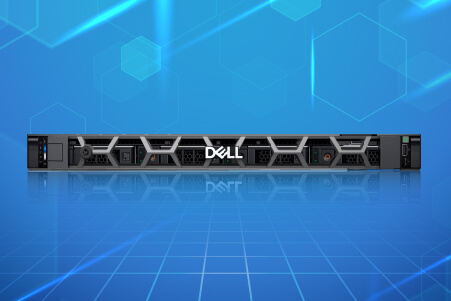
PowerEdge R660xs
- Intel® Xeon® Bronze 3408U 1.8 G
- 1x 16GB, 4800MHz
- 1x 480GB SSD SATA
The PowerEdge R660xs server is designed specifically for virtual desktop infrastructure (VDI), virtual machines (VM), and software-defined storage (SDS) environments.
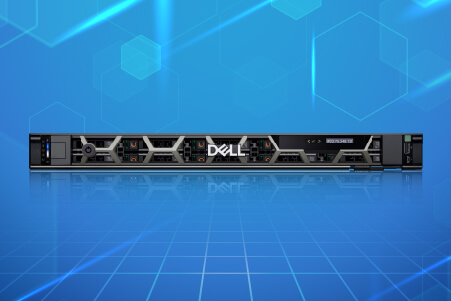
PowerEdge R6625
- 2x AMD EPYC 9124 3.0 GHz
- 2x 16GB, 4800MHz
- 1x 480GB SSD SATA
The PowerEdge R6625 is designed to be the backbone of your data center, offering abundant performance and flexible storage options with low latency.
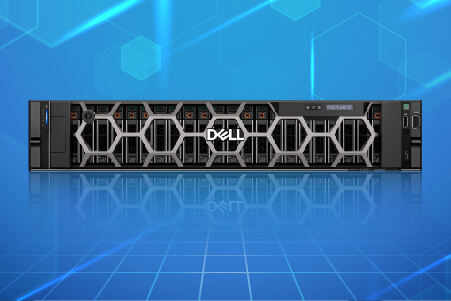
PowerEdge R7625
- 2x AMD EPYC 9124 3.0 GHz
- 2x 16GB, 4800MHz
- 1x 480GB SSD SATA
The PowerEdge R7625 integrates numerous security features to safeguard data and enable remote management, high performance, and flexibility for demanding applications and resource-intensive workloads.
Buy Server physical server Dell PowerEdge Tower
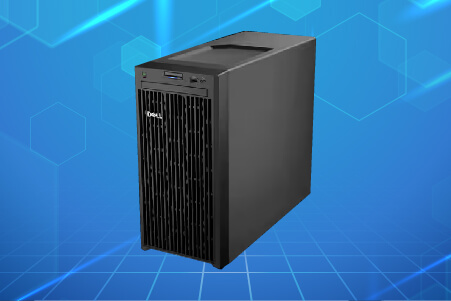
PowerEdge T150
- Intel® Pentium G6405T 3.5 GHz
- 1x 8GB 3200MHz
- 1x 1TB HD SATA
The compact design meets the basic computing needs of small and medium-sized businesses. PowerEdge T150 offers stable performance, basic scalability, and flexibility.
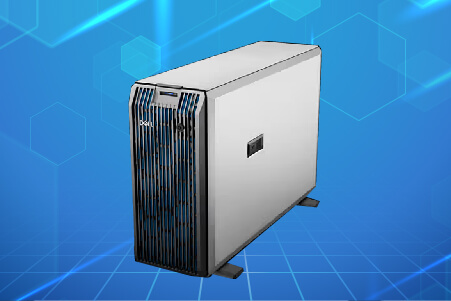
PowerEdge T350
- Intel® Pentium G6405T 3.5 GHz
- 1x 8GB 3200MHz
- 1x 2TB HD SATA
The PowerEdge T350 server delivers high performance, flexibility, and security. With scalability and convenient management, this is the ideal solution for small and medium-sized businesses.
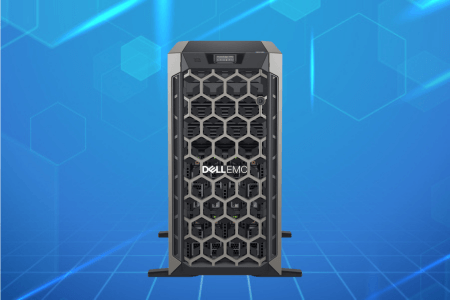
Dell PowerEdge T440
- Intel Xeon Bronze 3204 1.9 G
- 1x 8GB 3200MHz
- 1x 1TB HD SATA
Offers flexibility with a mountable tower platform, a short 22" depth, and quiet acoustics suitable for the office or data center.
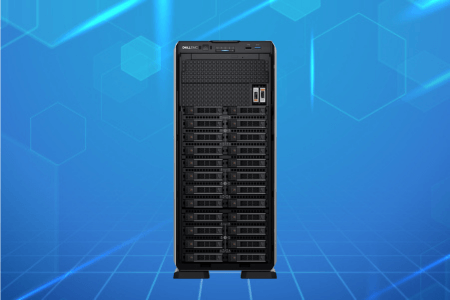
Dell PowerEdge T550
- Intel® Xeon® Silver 4310 2.1 G
- 1x 8GB 3200MHz
- 1x 1.2 TB HD SAS
High protection of data assets and infrastructure thanks to anti-attack features, deeply integrating security into every stage of the lifecycle
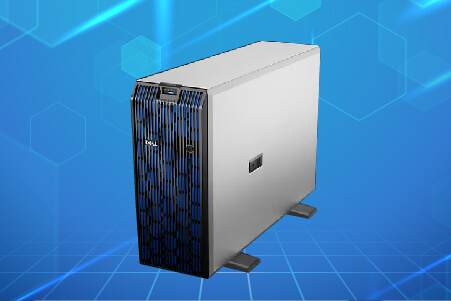
PowerEdge T560
- Intel® Xeon® Silver 4410Y 2G
- 1x 16GB, 4800MHz
- 1x 2TB HD SATA
The Dell PowerEdge T560 is an enterprise-grade tower server offering advanced technologies. Designed with the purpose of reducing noise levels, it is office environment-friendly.
Buy server physics server Dell Poweredge other
Speed up the process of conversion you everywhere with the item bought physical server Dell Poweredge widely been optimized for workload latest.
PowerEdge Modular Infrastructure
PowerEdge Rugged Rack Servers
PowerEdge XE Servers
Server Racks & Accessories
PowerEdge Cloud Scale Servers
Server System Management Software
Server Racks & Accessories
Strength physical server Dell Server Technologies
Server server physical Dell provided by Lac Viet come with various powerful configurations, catering to the diverse usage needs of every business, from small to large scales or data centers requiring complex and demanding workloads, ready for the future with easily expandable computing, networking, and storage capabilities.

| ☑️ Powerful configuration | Server server Dell has powerful configuration operation with stable performance for every job requirement. |
| ☑️ Accurate advice | Accurate server configuration consulting with flexible scalability suitable for customer usage needs and financial constraints. |
| ☑️ Best warranty | Professional and friendly 24/7 technical support, a genuine warranty, and fast procedures. |
| ☑️ Safety and security | The server physical server Dell integrated features robust security to protect data and systems from cyber threats. |
| ☑️ Cost savings | Best quotes and numerous benefits are available to enterprise customers and projects when purchasing Dell servers from Lac Viet |
Lac Viet is proud to be a Titanium partner of Dell Technologies
For nearly 30 years, Lac Viet has been providing software and hardware solutions to SME/Enterprise businesses nationwide, boasting an experienced team of professionals and close relationships with leading brands to guide customers' choices accurately and precisely.
Contact for IT product and service consultation

- Address: 23 Nguyen Thi Huynh, ward 8, Phu Nhuan district, Ho Chi Minh city
- Hotline: (+84.28) 3842 3333
- Email: info@lacviet.com.vn
Please leave your support inquiries in the form below, Lac Viet will respond via email within 24 business hours!
Lac Viet's Technology Ecosystem
Applications
Platform infrastructure
Technology services
IT equipment
Câu hỏi thường gặp KHI BÁO GIÁ MÁY CHỦ SERVER
Server what is physics?
Physical Server (Physical server) or also known as Dedicated Serveris a separate server that entire resource its hardware (CPU, RAM, hard drive, bandwidth) are reserved for a business or individual. Other than the service shared hosting (shared hosting) or virtual servers (VPS), a physical server does not share resources with other users to control absolute about the hardware, software, and configure security for business.
Compare physical servers with virtual servers (VPS) and cloud server (Cloud Server)
- Virtual servers (VPS – Virtual Private Server): VPS is a form of server-generated by splitting a physical server into various virtual servers. Each VPS acts as a private server, but still have to share resources with the other VPS on the same physical server. VPS in accordance with the small business or website traffic average.
- Cloud server (Cloud Server): Cloud Server using resources from multiple physical servers different through an infrastructure cloud. Scalable, flexible, high availability. However, do not provide comprehensive control, there may be a cost to use higher if the required resources.
- Physical server: is the optimal choice for the business that requires processing big data, need stability, maximum security. The physical Server to bring the highest performance, high long-term stability and full control. However, the cost of initial investment, high requirements on technical to operate are the factors to consider.
Roadmap investment buy-to-server and server maintenance physics
Determine the cost of the initial investment
When deciding to invest in a physical server, businesses need to plan the budget in detail for both hardware and software and technical services related. The cost for physical servers factors include the following:
- Hardware: CPU, RAM, disk storage, network card, cooling system, power supply backup (UPS).
- Software: The cost for operating systems (Windows Server, Linux, etc.), the management software, server, software, security and other related tools.
- Technical manpower: Due to the physical server high technical requirements in the process of commissioning, maintenance, businesses need to invest in technical team in-house or outsource the service management system from the IT expert.
Calculate the cost, maintenance – upgrades
Businesses also need to predict costs for the maintenance, upgrade the server from time to time. Factors to consider include:
- Cost of hardware maintenance: Include replacement of components damaged as hard drives, cooling fans, power supplies, etc.
- Upgrade costs: To meet the growth needs of the business, may need to upgrade to more RAM, storage, or even replacing the CPU more powerful.
- Cost of software maintenance: Copyright the operating system, software, security, administration tools, also need to be updated and renewed periodically.
Plan periodic maintenance
Maintenance, inspection, component replacement hardware:
- Check the status of components: monitor CPU temperature, RAM, hard drive, check the status of cooling fan, power system, the performance of the drive.
- Replace components as necessary: When the detection of signs of a decrease in performance of the parts like hard drive failure, fan failure, or power source is not stable, need to replace immediately to avoid big breakdown.
- Check cooling system and power supply: cooling System plays an important role in keeping the servers stable operation. Check periodically to ensure no overheating. In addition, the need to maintain a power supply backup (UPS) to ensure the server is not interrupted when there is breakdown of electricity.
Software updates, security, server performance
- Operating system updates: Made patches and security updates from the vendor to protect the system from the new threat.
- Update security software: software firewalls, anti-virus software, security solutions need to be updated regularly to detect prevent hazards.
- Optimized software management server: Ensure the software resource management and monitoring server activity, efficiency, help identify potential issues before they become big problems.
Optimized long-term performance
Performance analysis for optimal use of resources: After a period of operation, the evaluation of the performance of the server is necessary to ensure that the hardware resources are being used effectively:
- Monitor CPU usage, RAM: Defines whether the server is overloaded or resource use too little, thereby optimizing the configuration or upgrade to add resources as needed.
- Analysis of storage: Evaluate the performance of the hard drive, the speed data access, and the level of use of storage space to determine when to expand or replace the parts store.
- Analyze network bandwidth: Check whether the network bandwidth are sufficient to meet the connectivity requirements of the business or not. If necessary, can upgrade the network card or connect extension.
Planned hardware upgrades as needed: Over time, the need to use servers of the business can be increased, so that there is a plan to upgrade the hardware to better meet the new requirements:
- Upgrade RAM: If the processing tasks require more memory, upgrade RAM is a popular solution to increase performance.
- Replace CPU: If physical servers need to handle the work more complex calculations, you may need to upgrade to the line CPU new, more powerful to meet the workload.
Expand storage capacity: Business can add additional hard drive or even replaced by the SSD drives have higher speeds to meet the requirements of performance and data storage is increasing.
Factors to consider when buying server physical server
Hardware performance: CPU, RAM, hard drive
- CPU is the most important component decision processing speed, the ability to enforce its server. When buying physical servers, businesses need to select the CPU in accordance with the volume of work and intended application running on the server.
- RAM memory (random access): RAM is temporary memory used to store data need to be processed quickly.For basic applications, such as web hosting, email server, or other office apps, 16GB to 64GB of RAM may be enough. However, for the system database, graphics processor, or the work requires many resources such as data analysis (Big Data), may need from 128GB and above.
- Hard drive (Storage):HDD has large capacity, low price, suitable for the system need to store big data, but does not require speed access too high. SSD can speed read/write is faster than the HDD several times suitable for applications that need speed fast access (as the system database or server running heavy apps). Businesses should also consider deploy RAID to increase performance and the ability to recover data in case of hard drive trouble.
Scalable server
- Extended hardware: The ability to upgrade RAM, hard drive; Supports multiple CPU
- Scalable software: Physical servers should support the foundation virtualization (such as VMware, Hyper-V) to business can run multiple virtual servers on one physical server, optimize the use of resources. Ensure that the server can be easily integrated with various storage solutions, data backup, remote (NAS, SAN) to ensure safety, the ability to recover data.
Confidentiality
Physical servers is an important asset of the business, so it should be protected from the threat.
- Security lock, access control, physical: Physical servers should be placed in the server room with access control physics strict with security systems such as magnetic card, surveillance camera, electronic lock.
- Monitoring system temperature, power source: Cooling systems, backup power helps to ensure servers are not overloaded heat or interrupting the power source thereby reducing the risk of hardware damage.
- Firewall (firewall): A firewall systems help prevent unauthorized access, attacks from the network.
- Software, anti-malware virus: help detect and prevent the malicious code, spyware intrusion into the server system.
- Data encryption: To protect sensitive data, businesses need to use the solution encrypts data both when stored and during transmission.
Operating costs – maintenance
Cost, power consumption: The physical server typically consume the amount of power, particularly when continuous operation 24/7. Therefore, enterprises need to calculate the cost related to the power supply, cooling for server systems. Choose server performance, high power (for example: certified Energy Star) will help to save costs in the long term.
Maintenance cost technical support
- Support services from the supplier: Should choose server provider whose services to support our clients, including the package, warranty, service, maintenance, technical support 24/7.
- The cost of replacement components: For physical servers, the components such as hard drives, RAM, power supplies may need replacement after a period of use. Therefore, businesses need to anticipate the cost for this in the process of operation.
- PowerEdge
Rack - PowerEdge
Tower


